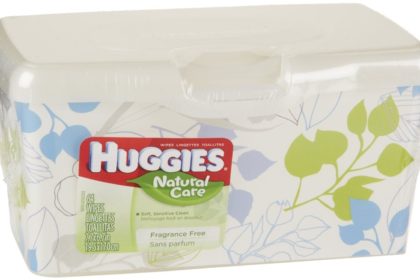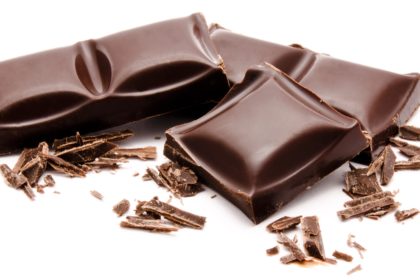Sodium benzoate (also known as E211) is a chemical preservative used to help inhibit the growth of bacteria and fungus in acidic products. It has been linked to premature aging and cancer. Here’s why…
Sodium Benzoate Is Manufactured from Crude Oil
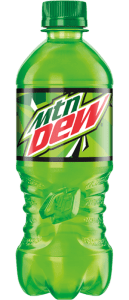
Sodium benzoate is the sodium salt of benzoic acid. This crystalline powder is produced by reacting sodium hydroxide (lye) with benzoic acid.
And benzoic acid is commercially manufactured by reacting with a carcinogen, toluene, with oxygen. Toluene is:
- Related to benzene (a carcinogenic substance).
- Found in crude oil and used to make gasoline.
- Also known as methylbenzene or phenylmethane.
Due to the unpleasant aftertaste of sodium benzoate and not so much for toxicity, sodium benzoate concentration is limited by the FDA in the U.S. and should not exceed 0.1% by weight.
Mountain Dew ingredients: CARBONATED WATER, HIGH FRUCTOSE CORN SYRUP, CONCENTRATED ORANGE JUICE, CITRIC ACID, NATURAL FLAVOR, SODIUM BENZOATE (PRESERVES FRESHNESS), CAFFEINE, SODIUM CITRATE, ERYTHORBIC ACID (PRESERVES FRESHNESS), GUM ARABIC, CALCIUM DISODIUM EDTA (TO PROTECT FLAVOR), BROMINATED VEGETABLE OIL, YELLOW 5
The Alternative Preservative
Potassium benzoate, the potassium salt of benzoic acid, is an alternative preservative to sodium benzoate.
As a result, potassium benzoate is used in place of sodium benzoate when the product is manufactured to be lower in sodium.
Foods With Sodium Benzoate
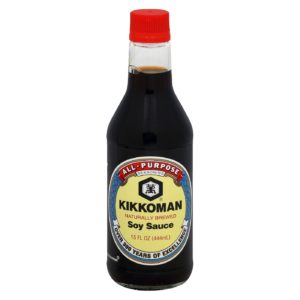
Sodium benzoate is linked to aging and cancer and is widely used in foods, beverages, cosmetic, dental care products, and pharmaceuticals that contain:
- Vinegar (salad dressings, pickled foods)
- Carbonic acid (carbonated drinks)
- Citric acid (jams, fruit juices, cough syrups, baby wipes, liquid hand soaps)
- Alcohol (alcohol-based mouthwash)
- Other high acids (soy sauce, Chinese food sauces)
UPDATE: Kikkoman was called out in 2014 when Consumer Reports warned shoppers that the word “natural” on labels is misleading. Kikkoman touted that their soy sauce was “naturally brewed”, yet it contained sodium benzoate. Kikkoman has since removed sodium benzoate from its soy sauce.
(THEN) Kikkoman Soy Sauce ingredients: WATER, WHEAT, SOYBEANS, SALT, SODIUM BENZOATE: LESS THAN 1/10 OF 1% AS A PRESERVATIVE.
(NOW) Kikkoman Soy Sauce ingredients: WATER, SOYBEANS, WHEAT, SALT.
Natural Sources of Benzoic Acid
If you’ve ever had a bladder infection and were told to drink cranberry juice, here’s why. Benzoic acid has antifungal properties and is produced by many plants.
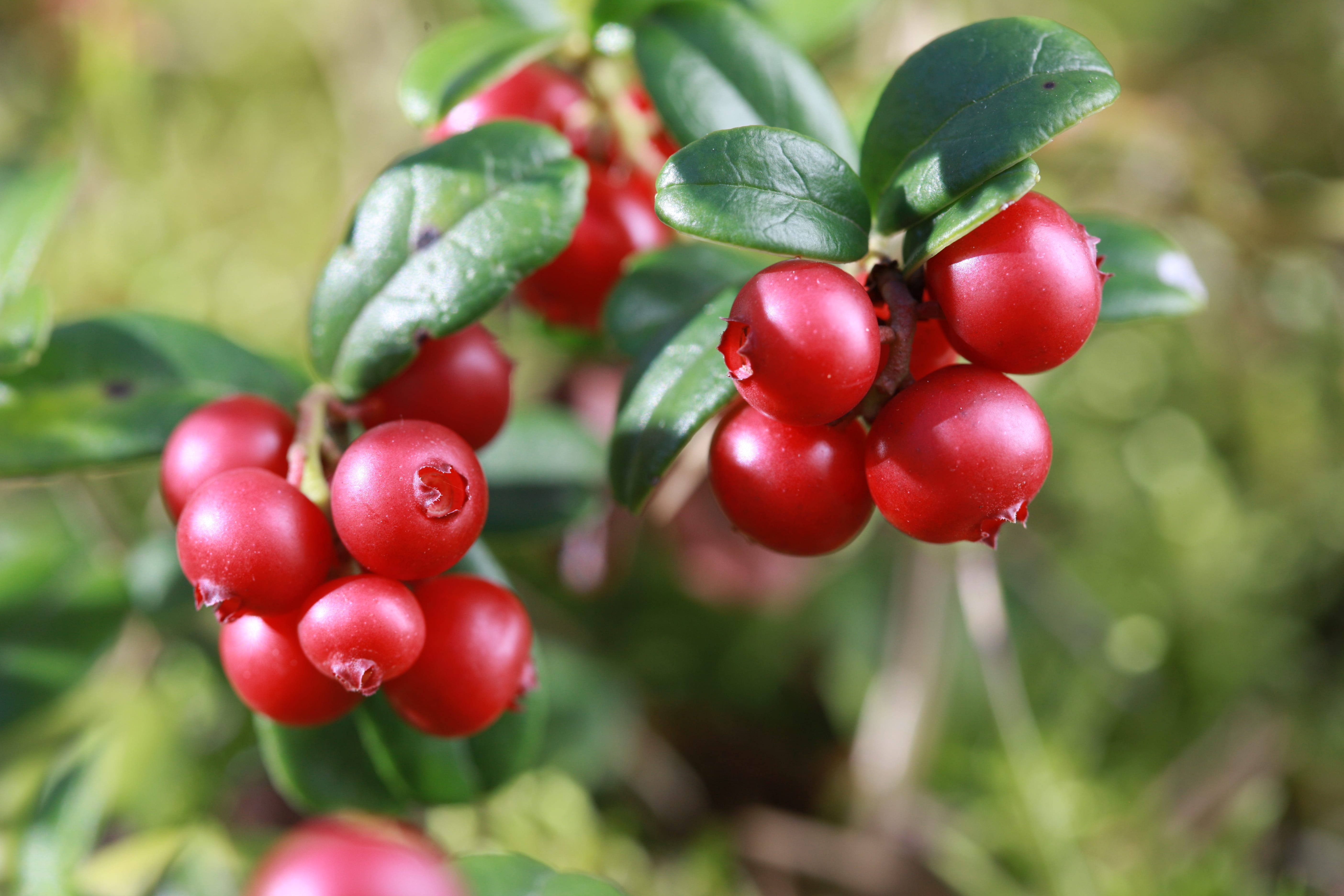
High concentrations of benzoic acid are found in cranberries and are also found naturally in:
- Prunes
- Greengage plums
- Cinnamon
- Ripe cloves
- Apples
Carcinogenic Effect (Sodium Benzoate + Vitamin C)
Sodium benzoate is not known to be carcinogenic on its own. However, there have been concerns by the FDA that when both vitamin C (ascorbic acid) and sodium benzoate are mixed, they form benzene, a known human carcinogen.
Benzene is also formed when potassium benzoate is combined with vitamin C.
Shelf life and exposure to high temperature or light affect the rate that benzene is formed.
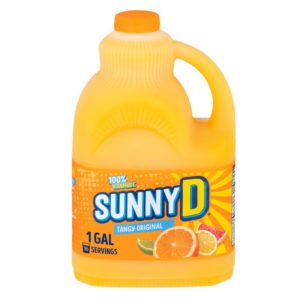
UPDATE: Sunny D removed sodium benzoate from its citrus punch, but still contains some not-so-healthy ingredients including corn syrup, oil, starch, phosphates, artificial sweeteners, and artificial colorants:
WATER, HIGH FRUCTOSE CORN SYRUP AND 2% OR LESS OF EACH OF THE FOLLOWING: CONCENTRATED JUICES (ORANGE, TANGERINE, APPLE, LIME, GRAPEFRUIT, PEAR), CITRIC ACID, ASCORBIC ACID (VITAMIN C), THIAMIN HYDROCHLORIDE (VITAMIN B1), NATURAL FLAVORS, MODIFIED CORNSTARCH, CANOLA OIL, SODIUM CITRATE, CELLULOSE GUM, SUCRALOSE, ACESULFAME POTASSIUM, NEOTAME, SODIUM HEXAMETAPHOSPHATE, POTASSIUM SORBATE TO PROTECT FLAVOR, YELLOW #5, YELLOW #6.
As you can see, this drink also contains canola oil. Do you want to drink oil?
Why Sodium Benzoate Causes Aging
In May 2007, the professor of molecular biology and biotechnology at the University of Sheffield and an expert on aging, Professor Peter Piper, spoke out linking benzoates to cell damage.
The preservative caused an increased production of oxygen radicals, or “free radicals”, which several studies have linked to serious diseases and to the general aging process.
And according to Professor Piper’s research, which he published in 1999, benzoates attack the cells’ mitochondria.
Mitochondria are the body’s “cellular power plants”. They generate most of the cell’s supply of energy and their ability to operate efficiently is vital to good health.
Benzoates damage the DNA within your body’s “power plants”, so they lose their ability to fully convert oxygen to energy.
As a result, small amounts of this oxygen escape, and create highly reactive oxygen radicals.
Oxygen Free Radicals Can Accumulate and Damage DNA
When a high level accumulate in the cells, the consequences can be dangerous.
Most of the free radicals can be repaired with reasonable efficiency by eating foods high in antioxidants. Simply put, that’s because antioxidants can limit damage by passivating them.
When cells start to malfunction, they can totally inactivate DNA or cause DNA mutations (alterations), which result in disease.
Oxygen Free Radicals Are Linked to Disease
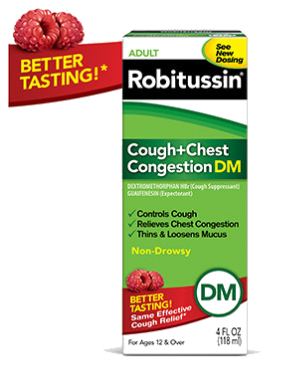
Oxygen radicals have been associated with several diseases caused by the accumulation of cell changes, such as:
- Liver cirrhosis (liver cell death)
- Parkinson’s disease (neuronal cell death)
- Progressive deterioration of general health that occurs in old age, including gray hair.
Robitussion ingredients: ANHYDROUS CITRIC ACID, CARBOXYMETHYLCELLULOSE SODIUM, FD&C BLUE NO.1, FD&C RED NO. 40, GLYCERIN, LIQUID GLUCOSE, MENTHOL, NATURAL AND ARTIFICIAL FLAVORS, POLYETHYLENE GLYCOL, PROPYLENE GLYCOL, PURIFIED WATER, SODIUM BENZOATE, SODIUM CITRATE, SODIUM GLUCONATE, SUCRALOSE, TRIACETIN, XANTHAN GUM.
Sodium Benzoate and Baby
Sodium benzoate is widely used as a preservative in baby wipes, even those marketed as “natural”.

Other Adverse Effects
Sodium benzoate may increase sensitivities and allergic reactions in people with asthma and recurrent urticaria (hives).
![]() Karen’s Fit Tip: Many additives are relatively new. Be aware of preservatives in the products you eat, drink, or rub into your skin.
Karen’s Fit Tip: Many additives are relatively new. Be aware of preservatives in the products you eat, drink, or rub into your skin.
So prevent your vulnerability to aging and cancer by reading product labels.
Avoid sodium benzoate and potassium benzoate as much as possible since their long-term impact cannot be known with 100% certainty.
In the meantime, eat a diet rich in antioxidants to combat the aging process.



